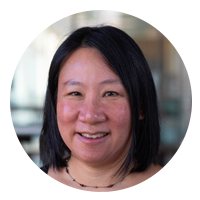Meeting the Mission and the Moment
Written by Andrea Fontana
Tuesday, August 5, 2025
/0x30:2240x1459/prod01/channel_34/media/seattle-university/news-amp-stories/magazine/spring-sum-2025/Pope_Francis_new.jpg)
As first U.S.-born pope, Leo XIV brings multiculturalism and a deep understanding of the challenges facing the country and the world to the papacy.
In the first days after his election, the world quickly learned that Cardinal Robert Prevost—who took the name Pope Leo XIV—brings to his papacy multicultural roots in the United States, a religious vocation within the Augustinian order, decades of ministry in Peru and service to Pope Francis at the Vatican.
What more have we discovered about the new pope since those early days? What might the first weeks of Leo’s papacy signal about the future direction of the Catholic Church? And how might his leadership of the Church impact Seattle University as a Jesuit, Catholic university in this moment in time?
Speaking Our Language
Pope Leo has been hailed as the first U.S.-born pope. To the papacy he brings a lived understanding of the issues facing the Catholic Church in the United States. Given his dual citizenship in the U.S. and Peru, however, he might more appropriately be called a “Pope of the Americas.” And if you include his experience as Prior General of the worldwide Augustinian order, he transcends even those geographic boundaries. Indeed, without the former Cardinal Prevost’s global experience, he might not have been considered a viable successor to St. Peter.
Pope Leo speaks fluent English, Spanish, French, Italian and Portuguese. The pontifex’s multicultural and multilingual background allows him to represent the Catholic Church and build bridges with peoples across the world.
Additionally, his identity as an American and a native English speaker positions him to communicate and connect effectively with Catholics and non-Catholics across our country. This is already evidenced by Americans’ early opinions of the new head of the Catholic Church. According to a survey from The Associated Press, 65 percent of American Catholics and 44 percent of U.S. adults have a “very” or “somewhat” favorable view of Pope Leo.
Public perceptions of the leader of the Catholic Church have implications for Seattle University as a Catholic university. Openness to the new pope bodes well for receptiveness to our university’s mission and vision in the unchurched Pacific Northwest.
Listening Humbly and Attentively
Pope Leo is not only adept in his ability to speak to broad audiences, but also in his capacity to listen to them well. He is someone who “listens with the sharpness of attention,” observes Anna Rowlands, chair of the Centre for Catholic Social Thought and Practice, who was on a panel presented by Outreach on the pope’s first month.
The value of listening also emerges in Pope Leo’s commitment to synodality, a process of “walking together” by engaging in mutual listening and discernment to address the Church’s challenges and opportunities. While it is too early to say exactly where Pope Leo might fall on issues such as the ordination of women as deacons or the inclusion of people who identify as LGBTQ+, many hope that his dedication to synodality means he will approach these issues with a posture of listening.
Pope Leo’s way of proceeding as a global leader who listens deeply and deliberately is urgently needed in today’s climate of polarization. He serves as a model for the type of leader we hope to educate at Seattle University.
Responding to the Issues of Our Day
One of the best clues to understanding how the new pope envisions the Church’s role in the world is Cardinal Prevost’s choice of the name Leo XIV. He was inspired by Pope Leo XIII, the author of Rerum Novarum, a papal letter that addressed issues of labor in the industrial revolution and ushered in an era of Catholic social teaching.
Continuing this tradition, Pope Leo is interested in applying the Church’s wisdom to a second industrial revolution that includes challenges to work posed by the development of artificial intelligence. “How are people going to earn their living when there will be less and less jobs? This should be of great concern to universities,” says Cardinal Michael Czerny, S.J., Prefect of the Dicastery Promoting Integral Human Development, during a recent interview with CBS News.
Through its Ethics and Tech Conference and in its Revised Strategic Directions, Seattle University joins Pope Leo in shaping public discourse on the new digital revolution. Pope Leo’s thinking about how the Church can address the rapid changes we are living through can provide invaluable guidance for Seattle University’s work of “empowering leaders for a just and humane world.”
These qualities of Pope Leo’s emerging papacy—his ability to connect with people across the globe, his deliberate way of proceeding through humble and attentive listening and his desire to bring the Church’s wisdom to bear on the urgent issues of our day—can serve as an inspiration to the Seattle University community as it lives out its mission as a Jesuit, Catholic university in this moment in time.

Andrea Fontana is Associate Director of the Center for Jesuit Education.
Read more about Pope Leo XIV and what university leaders believe his impact will be on the Catholic Church and beyond.
/0x104:2400x1620/prod01/channel_34/media/seattle-university/news-amp-stories/images/Audrey-Hudgins-pope-pic.jpg)
/18x0:2377x1490/prod01/channel_34/media/seattle-university/news-amp-stories/images/Immersion-trip-group-shot-USE.jpg)
/0x41:2400x1557/prod01/channel_34/media/seattle-university/news-amp-stories/images/PrezSpeaker_SamSawyerSJ_td_005-copy.jpg)